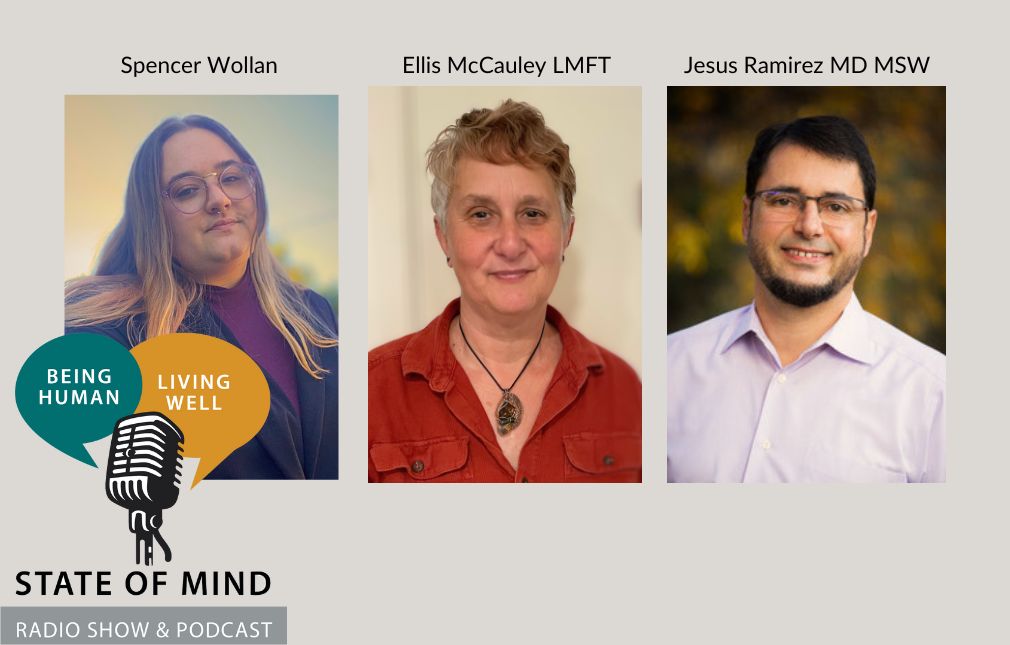Ketamine assisted psychotherapy (KAP) is a very promising new treatment that facilitates improvement of many mental health concerns. It is an “off-label” use of legal medicine for many treatment resistant mental health conditions and can also effectively reduce distress in areas of existential or spiritual crises. It has a long standing safety record as an analgesic and anesthetic (at much higher doses than KAP) and tends to be well tolerated by most. While most of the research on Ketamine’s efficacy is in the area of depression relief, it is offering a great deal of hope for those suffering with trauma/PTSD , OCD/severe anxiety disorders, end of life anxiety and many other mental health issues and diagnoses.
Ketamine acts on the structure of the brain, increasing neural network growth and neuroplasticity. It also frees up the imagination to allow for creative, new problem solving and inspiring insights. It provides a break from the “default mode network” a part of the brain which perpetuates hyper-vigilance and circular, self-critical and life-limiting perspectives.
In offering some distance from the usual ways of thinking and dodging discomfort, Ketamine affords more room for curiosity and connection to one’s true self and values. This can lead to a sense of greater aliveness and a willingness to let go of the perpetual struggle to be in control.

The importance of the psychotherapy
KAP can be a very mind-opening experience. Shifts in the relationship to self and in thinking patterns can take place and it becomes possible to see through limiting beliefs and recognize a much larger world than ever experienced before. This bigger sense of self and life as a whole can serve to replace the rigid redundancy of the stories promoted by anxiety, including OCD. Traumatic memories and other difficult past experiences can become easier to face and view in a different, more self-compassionate light. The combination of the medicine and psychotherapy facilitates the processing of the new information and perspectives so that they can be integrated into daily life.
My work as a Ketamine-Assisted Psychotherapist
I am a psychotherapist, not a prescriber. I work closely with a medical doctor to assess clients who are appropriate for this treatment. We will meet for at least 4 or 5 weekly sessions to establish a therapeutic collaboration and make sure that this is the right approach. Most importantly I want to provide the most stable foundation of support for your experience.
The medicine session will be followed by a series of integration sessions, in order to strengthen and anchor the wisdom that was revealed and to practice new behavioral choices in everyday life. In this way the vision can become reality and offer concrete transformation in addition to insight. We will meet for a minimum of 3 integration sessions and more if it seems warranted.
The importance of ongoing therapy
It works best to embed the Ketamine-assisted psychotherapy within ongoing therapy and there are some different options for how this can happen. One is that you work with me on a long-term basis and we take our time to assess and prepare for the Ketamine Therapy. If you have your own therapist, we can do short-term KAP (usually a few months minimum) and I can be in close communication with your therapist so they will have a clear sense of how to further the benefits when you return to work with them. If you don’t have a therapist and are interested in shorter term work we can assess what you need and spend a bit longer on preparation (developing the safety and support of our collaboration) and an extended integration.

My private practice setting vs an Infusion clinic
The medicine experience is just the beginning of the treatment. Our work together, that is personalized to your needs and goals is what will support lasting changes. In the infusion model, while the medicine benefit might be similar, there is generally no therapy during or after. It is more solely a bio-chemical impact that can shift mood. As a result these changes are short-lived and then there is a need for frequent (often at least twice a week) sessions, to sustain the benefits. In our work, you will have me with you throughout as a helper to navigate and process what you experience. We will anchor what you learn in subsequent sessions to practice new life choices toward your best life. In this way the changes can be deep and long-lasting vs. superficial and short-lived.
Frequency and duration of treatment
Generally it is advisable to receive the medicine at least a few times, approximately a week or 2 apart, in order to immerse in the new states of being and learning. For some clients due to either finances or learning style, it can work just as well to stretch it out to a 3 week interval and this is fine. Many clients find a great deal of benefit in just a few sessions and others choose to continue for longer. Often clients find it useful to have occasional ‘booster’ sessions (once every month or 2 is common) to return to a clear presence and to facilitate shifts when feeling stuck.
It can be scary to do something like this for the first time
It is understandable to have fear around the perceived loss of control involved in altering the familiar state of mind. It is for this reason that we will start at a dose that is lower and move gradually up to a dose that might be more effective. At the lower dose range, Ketamine can be calming and opening, sometimes leading to a smoother therapy process. Generally after this first session, people are at ease and ready to gradually increase the dose to the best therapeutic level.
Of course there will still be a level of unpredictability as is true for all of life! In part the work becomes a teacher for how to learn greater acceptance of uncertainty. The willingness to take part in something unfamiliar can be the first step in gaining the skills and courage to face other things leading to greater life engagement.
Consent puts you at the wheel
Your consent is paramount at every stage of our work together. It is always okay to change your mind about doing this work, even up to the moment before taking the medicine. If you have any hesitations and aren’t a full “yes” we will talk about it and make sure it is right to proceed.
Additionally, although the journey will be a different kind of experience than what you are used to, we will work together to make sure that you have whatever you need to feel safe and supported. We will plan ahead for what you might need and anything that you would not be comfortable with. Having a hand to hold or therapeutic touch for the purpose of helping you
ground in your body is available and at the same time never required or done without your consent both prior to medicine as well as in the moment.
I recognize this work is a different level of vulnerability and can create a lower sense of boundaries for clients. Because of this you can be assured that I will always hold to the clear parameters we discussed. I will hold to any limits or needs you have stated and will not take any liberties to introduce something new that we have not discussed. Your vulnerability will always be in the forefront of my awareness as I support your safety and whatever you need to have the most beneficial experience possible.
To be completely clear, our work together will always be completely non-sexual, with all the same parameters that ethics dictate for an effective therapeutic alliance. In this way, in combination with our preparation and collaboration, you will have more of an idea of what to expect, making the leap into the unknown much less scary.
What happens in the journey
You will dissolve the lozenge or lozenges and hold them in your mouth for nearly 15 minutes. You will wear eyeshades and there will be music that will accompany your journey. You will be lying down with a blanket over you. The medicine generally lasts about 1.5 hours and then we will spend an hour or so beginning the integration process. This involves both talking about the journey and, possibly utilizing art, sandtray or somatic therapy. You won’t be able to drive for the rest of the day, so it will be important to have someone bring you home or plans to stay in the area.

Meeting remotely or in person
It is best if you are local and we can meet for the journey sessions in person in my San Rafael office. This is generally recommended for at least the first few sessions and ongoing if possible.
In certain cases if it is not possible to meet in person due to location, it might be possible to meet virtually and it can offer the comfort of home to do it this way, as long as you have a relatively quiet, private space that you feel fully safe in and a support person who can be in the home for the duration of the session. This option isn’t always the right choice depending on many factors that relate to your therapeutic needs. And in the case of a remote session, in general it will mean a lower dose than we might shoose in person. We can talk about what is best for you.
You must be in California as I am not licensed to work with people residing in any other state.
KAP will not be a good fit for you if you currently or in the past have had any of the following:
High Blood Pressure (currently untreated), Seizures, Mania, Psychosis, Vascular disease or stroke, cystitis.
KAP steps and cost:
- Fill out the form below with some information about what has led you to consider this treatment.
- I will get back to you and if it seems appropriate to move forward we will schedule an initial 10-15 minute phone (or video if preferred) consultation (no cost).
- If we decide to move forward we will meet either virtually or in person for a 55 minute session to talk about your hopes, goals, and to answer questions. I will likely ask for your authorization to speak to your ongoing therapist. $225
- If it seems you are a good candidate, you move on to a virtual psychiatric and medical assessment with the prescriber I collaborate with that will be approximately 45-60 minutes and will cost approximately $350. Sometimes we decide to work together for some weeks before taking this step, just to be sure it feels right to go forward.
- Whether you meet earlier or later on, f it is determined that you meet eligibility for this course of treatment, a prescription will be sent to a compounding pharmacy that will ship the medication to your home. Cost is variable depending on how many lozenges you want to start out with. Generally about $100.
- You and I meet for a series of sessions that could be anywhere from a few sessions to a couple months, to build our therapeutic relationship and collaborative orientation to the work you are wanting to do, depending on whether we are working together short or longer term towards your goals. We will have 2-3 sessions focused specifically on preparation. All of these sessions will be $225 for 55 minutes.
- Journey session lasts about 3 hours. $225 per hour.
- We meet for a first post journey integration session within a few days of your journey and then resume weekly meetings ongoing or as determined to be useful.
Articles On Ketamine-Assisted Psychotherapy
To learn more about Ketamine-Assisted Psychotherapy listen to the below radio show I got to be part of:
Contact me with questions:
(In your message, include information about your interest and hopes for KAP. If you don’t hear back from me within a few days, send me an email just in case technology is failing):
